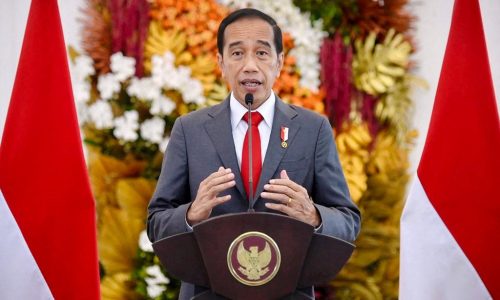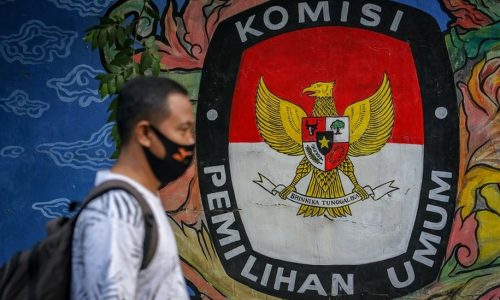The Coordinating Ministry for the Economy held a coordination meeting with all Deputy Ministerial elements along with the Ministry of Foreign Affairs and several Ambassadors on Monday, April 15, 2024 in response to developments in the Middle East conflict following Iran’s retaliatory offensive against Israel.
“This Coordination Meeting is an assessment on efforts to de-escalate the impact of conflicts in the Middle East on the Indonesian economy,” Coordinating Minister for the Economy, Airlangga Hartarto, said.
Indonesian Ambassador to Jordan, Ade Padmo Sarwono, provided updates on the development in the region and expressed hope that this development would not escalate as it would affect the economies of countries in the region, including Indonesia.
“Various parties are currently trying to contain the escalation of the conflict. Generally, tension in the region is increasing, but so far, it can still be managed,” Ambassador Ade said.
Indonesian Ambassador to Iran, Ronny P. Yuliantoro, conveyed political development in Iran and anticipated various impacts of the escalating Iran’s attack on Israel.
“We need to anticipate the impact of tensions in the region and disruptions in logistics and supply chains, given the importance of the position and the Strait of Hormuz route accommodating tens of thousands of ships per year,” Ambassador Ronny said.
Director General of Asia-Pacific and Africa at the Indonesian Ministry of Foreign Affairs, Abdul Kadir Jailani, emphasized the need to anticipate possible escalation from the current situation in the region.
Abdul Kadir conveyed that all parties currently do not want escalation, but suggested the necessity of anticipating various possibilities and their economic impacts, considering the importance of the Strait of Hormuz and the Red Sea, as well as the influence on oil prices and logistics costs.
The escalation of conflict between Iran and Israel over the weekend has affected the global economy, with global crude oil prices still fluctuating. In trading on April 15, 2024, the price of Brent crude oil weakened by 0.18 percent (dtd) to US$90.29 per barrel, significantly higher than the position on January 1, 2024, at US$77.4 per barrel, and the price of WTI crude oil fell by 0.28 percent to US$85.42 per barrel, higher than the position on January 1, 2024, at US$71.65 per barrel.
This escalation of geopolitical conflict has also caused the US Dollar index to rise, leading to a weakening of financial indicators in several countries, especially emerging markets. Most exchange rates in the Asia-Pacific region have weakened against the US Dollar, on Monday, such as the Thai Baht and the Korean Won which depreciated by 0.24 percent (dtd), and the Malaysian Ringgit by 0.24 percent.
Most stock exchanges in the Asia-Pacific region also moved into the red zone. At the close of the market on Monda, the FKLCI Malaysia index weakened by 0.55 percent, followed by Kospi at 0.42 percent. For Indonesia, the Indonesia Stock Exchange and the domestic Rupiah spot market are still closed due to the Idul Fitri holiday.
However, based on foreign spot market data (Trading Economics), the exchange rate of the Rupiah is at Rp16,060 or an appreciation of 0.31 percent (dtd), better than other countries such as Korea, the Philippines, and Japan.
To mitigate the impact of the global rise in oil prices due to the geopolitical conflict between Iran and Israel, the government is also monitoring the condition of the state budget in order to be able to carry out its role optimally as a shock absorber. Further coordination will be carried out with monetary and fiscal authorities to produce a policy mix in maintaining economic growth and stability.










